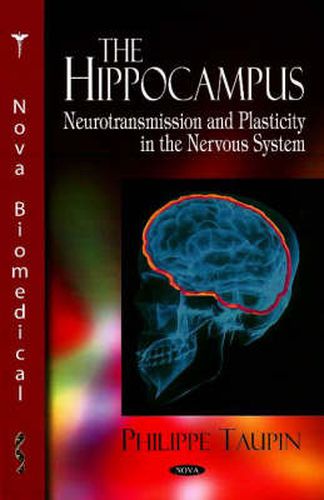Readings Newsletter
Become a Readings Member to make your shopping experience even easier.
Sign in or sign up for free!
You’re not far away from qualifying for FREE standard shipping within Australia
You’ve qualified for FREE standard shipping within Australia
The cart is loading…






The hippocampus , the Greek word for seahorse, is one of the most fascinating and intriguing regions of the mammalian brain. It is a bilateral incurved seahorse-shaped structure of the cerebral cortex. The hippocampus has a highly distinctive morphology. It is composed of two regions, the dentate gyrus (DG) and the Cornu Ammonis (CA). The nerve cells of the main layer of the DG and CA regions, the granule cells and pyramidal cells respectively, are organised in a tri-synaptic lamellaire circuit. The granule and pyramidal cells are glutamatergic excitatory. The granule cells elicit unique histological, biochemical, developmental, physio- and pathological features. The hippocampus is also an area of the brain that elicits a high degree of plasticity, like synaptic and phenotypic plasticity. It is also one of the few regions of the brain where neurogenesis, the generation of new nerve cells, occurs throughout adulthood. The hippocampus is involved in physio-and pathological processes, like learning and memory.
$9.00 standard shipping within Australia
FREE standard shipping within Australia for orders over $100.00
Express & International shipping calculated at checkout
The hippocampus , the Greek word for seahorse, is one of the most fascinating and intriguing regions of the mammalian brain. It is a bilateral incurved seahorse-shaped structure of the cerebral cortex. The hippocampus has a highly distinctive morphology. It is composed of two regions, the dentate gyrus (DG) and the Cornu Ammonis (CA). The nerve cells of the main layer of the DG and CA regions, the granule cells and pyramidal cells respectively, are organised in a tri-synaptic lamellaire circuit. The granule and pyramidal cells are glutamatergic excitatory. The granule cells elicit unique histological, biochemical, developmental, physio- and pathological features. The hippocampus is also an area of the brain that elicits a high degree of plasticity, like synaptic and phenotypic plasticity. It is also one of the few regions of the brain where neurogenesis, the generation of new nerve cells, occurs throughout adulthood. The hippocampus is involved in physio-and pathological processes, like learning and memory.